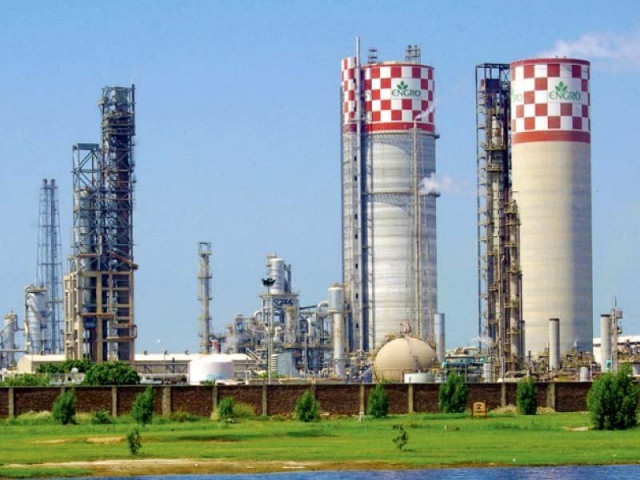Birth to speculation: Dawood Hercules cleans hands off fertiliser plant
Company enters into sale-purchase agreement with Pakarab Fertilizers

The process started in 2012 when Dawood Hercules Corporation’s directors first approved the sale. PHOTO: FILE
Onlookers can only watch, wait and see what unfolds as two parties engage in a monetary transaction.
The market would try and speculate as to who will benefit more, but the fact is, as one of the leading Pakistani stockbrokers Arif Habib articulated it, there is a reason why the transaction takes place. The buyer sees a benefit and so does the seller.
Comments and speculation followed after Dawood Hercules Corporation Limited on Monday said that it has finalised a long-pending deal to sell its urea manufacturing plant to Pakarab Fertilizers at a price that will come to around Rs2 billion.
It has entered into a sale-purchase agreement with Pakarab Fertilizers to hand over the entire shareholding in DH Fertilizers Limited (DHFL), which has a capacity to produce 445,500 tons of urea a year, according to a notice sent to the Karachi Stock Exchange.
Even though it said the price is yet to be determined, the notice indicated at an estimate.
“Price is essentially the differential between the agreed enterprise value of DHFL (Rs6.6 billion) and the total long-term loans (approximately Rs4.6 billion) and, at present, the price is approximately Rs2 billion,” it said.
DHFL is a wholly-owned subsidiary of Dawood Hercules Corporation, the holding company controlled by billionaire businessman Hussain Dawood who also holds stakes in Hub Power Company and Engro Corporation.
For more than three decades, this was the flagship business concern of Dawood’s but ran into losses a couple of years ago due to gas shortage in Punjab where its fertiliser plant is located.
As a matter of fact, DHFL also has stakes in Hubco and Engro that would be purchased by Dawoood Hercules as part of the sell-off deal.
The flip side – the buyer
Interestingly, Pakarab Fertilizers, a company of fast-expanding Fatima Group, also had to incur a substantial financial loss when its plant remained shut due to gas shortages.
“Apparently, it seems that Pakarab Fertilizers is sure about receiving gas from somewhere,” said Tahir Saeed, an analyst at Topline Securities. Natural gas is the key raw material for making fertiliser.
“If you look at this transaction from Dawood Hercules’ point of view, then they have a pretty good deal. This plant was in losses and each year they were pouring money into it.”
While details related to this deal have been concluded this year, the process started in 2012 when Dawood Hercules Corporation’s directors first approved the sale.
But then, the group backtracked on its decision, leaving a fuming Pakarab Fertilizers to file a suit in Sindh High Court in 2013. Later, the two parties reached an out-of-court settlement.
Industry people wonder why the majority shareholders of Fatima Group, including Arif Habib, are so keen on buying this plant.
“I am not saying that I am definitely sure but we expect to see resolution of the gas shortage,” Habib told The Express Tribune. “Pakarab Fertilizers (also located in Punjab) has been running perfectly for the past two-and-a-half months.”
Some of this optimism stems from the involvement of Fatima Group with recently-launched liquefied natural gas (LNG) import project, he indicated.
It was Fatima that came forward and paid for the first LNG shipment when the cash-strapped government faced difficulty in arranging funds in March this year. In turn, its fertiliser plant started receiving gas.
But Habib said that the group is also looking to convince the government to facilitate domestic production of fertiliser rather than relying on imports.
“We spend foreign exchange to import fertiliser and then subsidise exporters from other countries to keep the price down. That doesn’t make commercial sense,” he said.
However, small-time investors will surely wonder why Dawood Hercules didn’t bet on LNG imports itself for running the fertiliser plant while it owns a LNG terminal?
“I think their (Dawood Hercules) focus is on power after fertiliser,” says Habib.
“As far as we are concerned, we were already taking care of a special child,” he said, referring to the recurring gas shortage-induced shutdowns at Pakarab Fertilizers. “So, now we have another one to look after and that’s fine with us.”
No matter where the tilt lies, it was Dawood Hercules that hit its upper lock on Monday as the stock price increase Rs5.6 to end at Rs117.77. A total of 1.586 million shares were traded.
Published in The Express Tribune, June 16th, 2015.
Like Business on Facebook, follow @TribuneBiz on Twitter to stay informed and join in the conversation.



















COMMENTS
Comments are moderated and generally will be posted if they are on-topic and not abusive.
For more information, please see our Comments FAQ